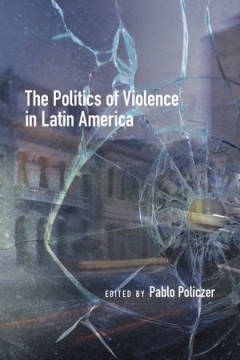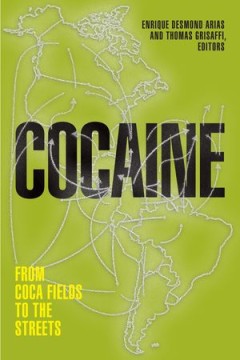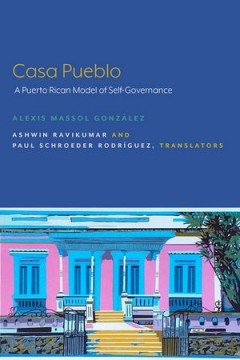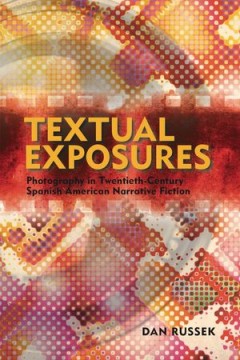Filter by

Allegories of the Anthropocene
In Allegories of the Anthropocene Elizabeth M. DeLoughrey traces how indigenous and postcolonial peoples in the Caribbean and Pacific Islands grapple with the enormity of colonialism and anthropogenic climate change through art, poetry, and literature. In these works, authors and artists use allegory as a means to understand the multiscalar complexities of the Anthropocene and to critique the v…
- Edition
- -
- ISBN/ISSN
- 9781478004103
- Collation
- -
- Series Title
- -
- Call Number
- -

Indian Water in the New West
Brings together the views of engineers, lawyers, ecologists, economists, professional mediators, federal officials, an anthropologist, and a Native American tribal leader--all either students of these processes or protagonists in them--to discuss how the legitimate claims of both Indians and non-Indians to scarce water in the West are being settled.
- Edition
- -
- ISBN/ISSN
- -
- Collation
- -
- Series Title
- -
- Call Number
- -

The Politics of Violence in Latin America
Latin America is one of the most violent regions in the world. It has suffered waves of repressive authoritarian rule, organized armed insurgency and civil war, violent protest, and ballooning rates of criminal violence. But is violence hard-wired into Latin America? This is a critical reassessment of the ways in which violence in Latin America is addressed and understood. Previous approaches h…
- Edition
- -
- ISBN/ISSN
- 9781552389072
- Collation
- -
- Series Title
- -
- Call Number
- -

In Defense of La Raza The Los Angeles Mexican Consulate and the Mexican Comm…
Mexican communities in the United States faced more than unemployment during the Great Depression. Discrimination against Mexican nationals and similar prejudices against Mexican Americans led the communities to seek help from Mexican consulates, which in most cases rose to their defense. Los Angeles’s consulate was confronted with the country’s largest concentration of Mexican Americans, f…
- Edition
- -
- ISBN/ISSN
- -
- Collation
- -
- Series Title
- -
- Call Number
- -

Cocaine; From Coca Fields to the Streets
The contributors to Cocaine analyze the contemporary production, transit, and consumption of cocaine throughout the Americas and the illicit economy's entanglement with local communities.
- Edition
- -
- ISBN/ISSN
- 9781478013723
- Collation
- -
- Series Title
- -
- Call Number
- 305.8 DES c

Casa Pueblo A Puerto Rican Model of Self-Governance
- Edition
- -
- ISBN/ISSN
- 9781643150291
- Collation
- -
- Series Title
- -
- Call Number
- -

Textual Exposures: Photography in Twentieth Century Spanish American Narrativ…
This book examines how twentieth-century Spanish American literature has registered photography’s powers and limitations, and the creative ways in which writers of this region of the Americas have elaborated in fictional form the conventions and assumptions of this medium. While the book is essentially a study of literary criticism, it also aims to show how texts critically reflect upon the m…
- Edition
- -
- ISBN/ISSN
- 9781552387849
- Collation
- -
- Series Title
- -
- Call Number
- -

Interpreting language-learning data
This book provides a forum for methodological discussions emanating from researchers engaged in studying how individuals acquire an additional language. Whereas publications in the field of second language acquisition generally report on empirical studies with relatively little space dedicated to questions of method, the current book gave authors the opportunity to more fully develop a discussi…
- Edition
- -
- ISBN/ISSN
- 978-3-96110-282-2
- Collation
- -
- Series Title
- Eurosla Studies 4
- Call Number
- 418.02 INT

On Self-Translation: Meditations on Language
Finalist for the 2018 Foreword INDIES Book of the Year Awards in the Essay category From award-winning, internationally known scholar and translator Ilan Stavans comes On Self-Translation, a collection of essays and conversations on language in its multifaceted forms. Stavans discusses the way syntax is being restructured by texting and other technologies. He examines how the alphabet itself is…
- Edition
- -
- ISBN/ISSN
- 9781438471495
- Collation
- -
- Series Title
- -
- Call Number
- -

Migration and Refuge: An Eco-Archive of Haitian Literature, 1982-2017
Haitian writers have made profound contributions to debates about the converging paths of political and natural histories, yet their reflections on the legacies of colonialism, imperialism, and neoliberalism are often neglected in heated disputes about the future of human life on the planet. The 2010 earthquake only exacerbated this contradiction. Despite the fact that Haitian authors have long…
- Edition
- -
- ISBN/ISSN
- 9781786941633
- Collation
- -
- Series Title
- -
- Call Number
- -
 Computer Science, Information & General Works
Computer Science, Information & General Works  Philosophy & Psychology
Philosophy & Psychology  Religion
Religion  Social Sciences
Social Sciences  Language
Language  Pure Science
Pure Science  Applied Sciences
Applied Sciences  Art & Recreation
Art & Recreation  Literature
Literature  History & Geography
History & Geography